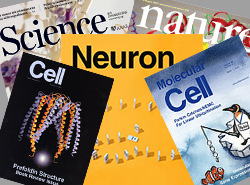Publication of IMPRS-LS student Tia Tyrsett Kuo

Kuo TT, and Ladurner AG.
Front Genet. 2019;10:1210.
doi:10.3389/fgene.2019.01210
Exploiting the Circadian Clock for Improved Cancer Therapy: Perspective From a Cell Biologist
Since the discovery of the biological clock, the concept of treating cancer according to biological rhythms, here termed cancer chronotherapy, has rapidly evolved. Its fundamental aim is to improve the efficacy of drugs and to minimize adverse effects by administering chemotherapeutic drugs at the appropriate time-of-day. In the last two decades, several experimental and clinical studies have reported positive associations between the circadian clock and drug response in cancer patients. However, the lack of mechanistic insights into critical, deterministic clock-controlled genetic, and metabolic variations between and within individual cancer patients continue to cast a shadow on the potential benefits cancer chronotherapy may provide. Here, we provide first a simplified overview on our biological clocks and how our life-style induces complex biochemical reactions and genetic interactions. Next, we summarize how these reactions directly and indirectly modulate the effectiveness and toxicity of oncological drug treatments. Since cytotoxic chemotherapy represents the most common and affordable of cancer treatments, a case should be made that we need to ensure these treatments are used in the best possible manner. Thus, we list current challenges and future directions toward that goal.
